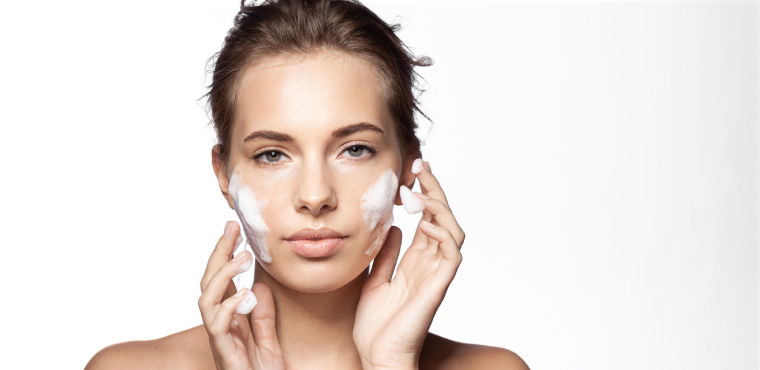
Aug 5, 2020
How Using Influencers has Changed Skincare Marketing
In a way, influencers have always been present in skincare marketing. Long before the rise of influencer marketing on Instagram, long before Instagram itself, skincare brands used celebrities to vouch for and advertise their skincare products. Skincare marketing thrives on the visual, so the use of influencers is unlikely to go away. However, as the audience changes and consumers from the so-called “digital generation” have the buying power now, brands need to change their approach and adapt to the different types of influencers available. The goal is to be as authentic as possible.
Celebrity Influencers
Now seen as a throwback advertising method from decades ago, campaigns that feature celebrities were mostly used to drive sales of a particular item, with one-off placement and a heavy focus on the product. You’ll hear that a celebrity has been named “the new face of … (insert brand here).” This marketing method is being used less these days as brands choose to place the focus on their brand identity rather than boost the sales numbers of a single lipstick. Instead of trying to identify with and mimic celebrity behavior, consumers want a more personal and authentic approach. It also makes the brand’s social presence less aggressive to the consumer.
Niche Influencers
Increasingly, it’s less about reach and the number of followers an influencer has, and more about their authenticity. According to a study by Celebrity Intelligence, niche female influencers are in high demand and have been used by 86% of the marketing professionals surveyed. Brands have started to focus on using micro-influencers with a smaller, more loyal following. Mid-tier and low-tier influencers are getting more work. However, they need to be picky about the campaigns they choose to support since this could affect their following as well. If they choose to go with a campaign that’s not a fit, or that seems inauthentic to their audience, this will damage their personal brand considerably and hamper their success for future campaigns. This dynamic seems to benefit the consumer the most, keeping influencers and brands honest and transparent.
Consumer-led Influencers
Celebrity Intelligence’s report predicts that consumer-led communities might soon hold the power. A brand that comes to mind is Glossier, the brain-child of a beauty blogger that is driven by its online community. Through engagement with the blog, it became clear where consumers felt the beauty industry was lacking, so in 2014 Emily Weiss founded Glossier with only four products. Glossier has been described as a “people-powered beauty ecosystem” and with more than 40 products at present, has been named a top beauty brand by the industry.
The Call for Transparency
The digital generation has spoken, and what they demand is transparency. A massive 73% of respondents from Celebrity Intelligence’s study reported that the digital generation is pushing them to place transparency first, forcing them to be very mindful of the influencers and celebrities that they choose to work with.
Advertisers need to tread carefully because the moment consumers feel a campaign is forced, it falls flat. Studies show that 61% of women will choose not to engage with the content from a campaign if it seems too much like traditional advertising. What consumers want is an honest opinion on what a product does, and how it can benefit them. Influencers are obviously compensated for publishing brand content, but the less obvious that is, the more successful the campaign.
Improving Skin, and the Planet
Consumers’ sense of social awareness has encouraged brands to innovate and make some scientific breakthroughs with their products, creating new formulations that make products safer. More ethical ingredient sourcing and internal policies in terms of manufacturing have had a significant impact on brands. We no longer require watchdogs to investigate the internal goings-on of large corporations and brands. Consumers are now interested in the ethical credentials of brands and will often base their purchasing decisions on how transparent you are about where your ingredients come from, and what wages your workers earn. Having a humanitarian goal, a heart-warming brand-story, and using eco-friendly ingredients could impact your profit margin more than getting the hottest new influencer to vouch for your product. In fact, if your standards aren’t high enough, you might have trouble finding a credible influencer who wants to partner with you.
This demand for transparency extends to the methods and internal policies of brands. Health, wellness, and sustainability are all issues cited as a priority for this generation. Consumers are more focused on formulations being vegan and cruelty-free than ever before, and brands need to respect and reflect that or lose market share. For this reason, you’ll notice more brands being pushed to partner with non-profit organizations that help the planet, and even change to sustainable packaging for zero waste.
We’ve come a long way from blatant paid promotion and plastering pictures of celebrities on products. This is great news for private label skincare companies, who don’t necessarily have access to celebrities and influencers with a massive following. Aim for authentic and transparent, and you’ll have far more success.